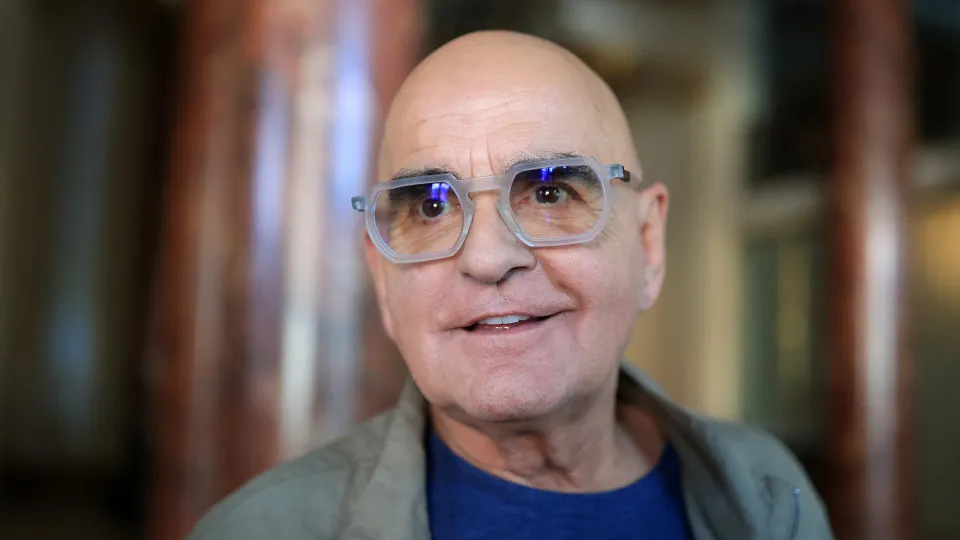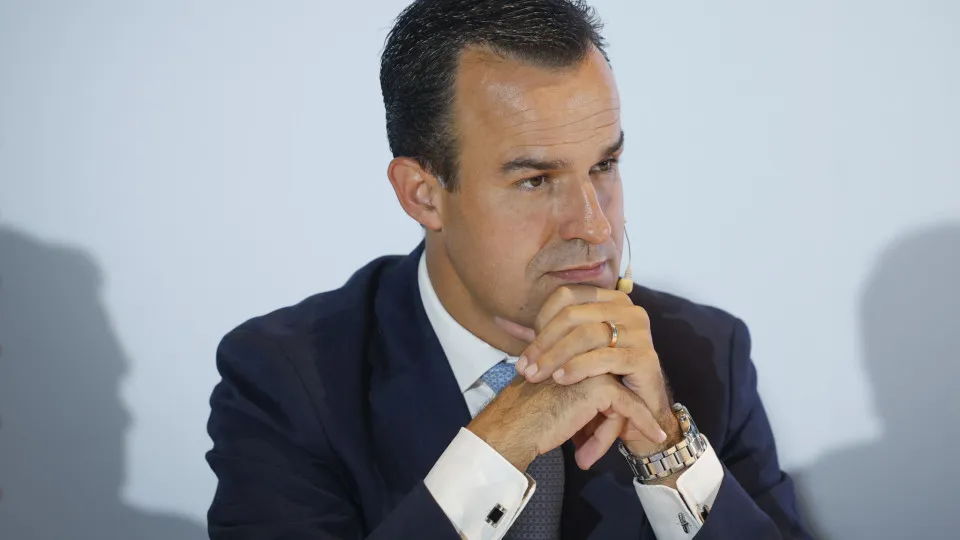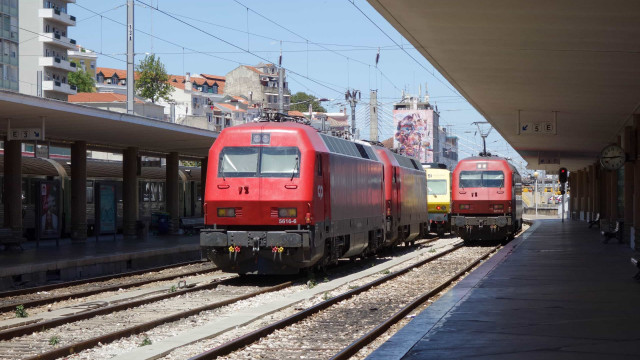
In a conversation with journalists, as his name was being placed in the main hall of the theater, Ricardo Pais expressed being “moved” by the distinction, which he views with humor.
“I should have some bananas and Carmen Miranda by my side, it will have a terrible Las Vegas look,” the director joked, adding that “no one can wish for more than to have their name on a theater” room.
The official ceremony will be held on October 16, as part of the “RP 80” program, which also includes the restaging of his iconic plays “Turismo Infinito” and “al mada nada,” performances the creator considers “a pre-posthumous tribute” that brings him “some joy” as they reflect the best of his work.
“There are shows that don’t die,” he stated, highlighting the endurance of “Turismo Infinito,” a piece created 18 years ago and successfully presented in Portugal, France, Germany, and Brazil.
“There are spectators who have seen ‘Turismo Infinito’ four times and will see it a fifth time,” he said, considering the two works “a good sample” of his journey.
“If I am worth anything amidst all this, which I am beginning to doubt,” he commented with irony.
Describing “Turismo Infinito,” he said it is “one of the most distilled things” he made, a synthesis of his way of connecting “stories through the senses.”
On the other hand, “al mada nada,” inspired by a tale of Almada Negreiros, is for Ricardo Pais “full of histrionic vitality,” revealing a “catharsis” concerning the memory of wars.
The director noted that the choice of plays was practical, as “there was no time to rehearse anything new,” and praised the “great effort by the administration” of TNSJ.
“These are shows everyone loves to see and regrets not being able to revisit,” he said.
Asked about the current theater culture, Ricardo Pais admitted not being “very optimistic” due to a lack of a clear vision, but hopes the future of theater will focus on its specificity, asserting that dramatic art should be pondered for what distinguishes it.
The “RP 80” program runs from October 16 to 19, featuring various activities including, in addition to restagings, the release of the book “Despesas de Representação — Ditos e Escritos (1975-2025),” a reflection on half a century of his career.
The highlight of the program occurs on October 16, with a solemn session at 6:00 PM, when the main hall of TNSJ will officially be named Sala Ricardo Pais.
This moment is followed by the restaging of two of his most iconic performances – “Turismo Infinito” at 7:00 PM and “al mada nada” at 9:30 PM.
TNSJ emphasizes that the “RP 80” program “exceeds the logic of homage or personal celebration,” functioning instead as “an exercise of attention” to one of the central figures of contemporary Portuguese theater and his constant reinvention of memory, art, and scene.
Born in Leiria in 1945, Ricardo Pais is one of the most influential Portuguese directors post the April 25 Revolution.
He trained as a director at the Drama Centre in London, returning to Portugal in the 1970s, a period during which he emerged as a central figure in the aesthetic and institutional renewal of Portuguese theater.
Over more than five decades of activity, he has directed stage productions that blend literature, music, and performance, exploring a theatrical language that combines formal rigor and poetic restlessness.
He has staged great classics of universal dramaturgy, including Molière’s “Don Juan” (2006), created “Turismo Infinito” (2007) based on Fernando Pessoa, and “al mada nada” (2014), a theatrical dialogue with the universe of Almada Negreiros, all at TNSJ.
“Ninguém — Frei Luís de Sousa,” based on Garrett, “Spring Awakening,” by Frank Wedekind, “Fausto, Fernando, Fragmentos” about Pessoa, “Minetti,” by Thomas Bernhard, “The Mandrake,” by Machiavelli, “Clamor,” by Luísa Costa Gomes, based on sermons by Padre António Vieira, are among the plays marking his career and theater in Portugal.
In a journey that includes authors such as William Shakespeare, Arthur Schnitzler, Federico García Lorca, Eugene O’Neill, Joe Orton, Alfred Jarry, Rainer Werner Fassbinder, there is also “The Tragicomedy of Dom Duardos” by Gil Vicente, “The Venice Preserv’d” by Thomas Otway, “The Lessons,” combining Eugene Ionesco, Georges Feydeau, Ramalho Ortigão, Ernesto Sampaio, and “Madame,” by Maria Velho da Costa.
In “Theater of Enormities only Believable by Electric Light,” which he conceived, he worked with Olga Roriz, and in “Sondai-me, Sondheim – Musical Insignificantia,” staged at TNSJ, in Porto, and at the National Theatre D. Maria II (TNDM), in Lisbon, he also revisited his acting side – the same that led him to the cinema of Manoel de Oliveira (“Amor de Perdição”), Luís Galvão Teles (“A Confederação”) and António-Pedro Vasconcelos (“O Lugar do Morto”), and to recreate the deposed government’s president, Marcello Caetano, in “April Captains,” by Maria de Medeiros.
Ricardo Pais took the leadership of the TNSJ twice, after having directed the TNDM (1989-1990): first between 1996 and 2000, and later from 2002 to 2009, during which he conceived the structure and ideology that reinvented the national theater model.
Under his direction, TNSJ promoted a repertoire of Portuguese and foreign authors, modernized its structure, and reinforced the role of public theater in the cultural life of Porto city.




